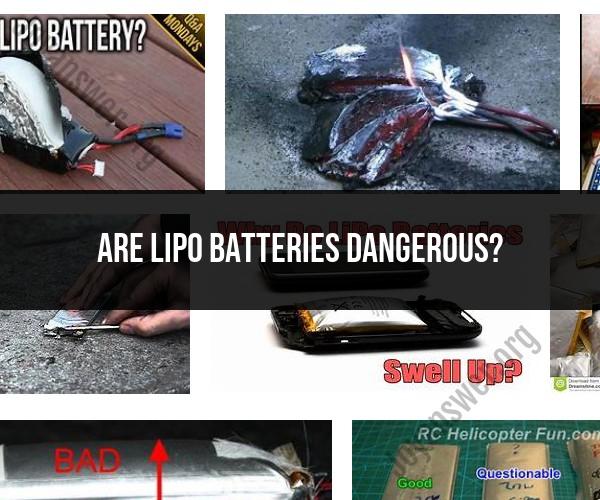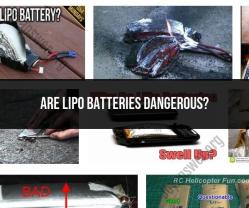Are LiPo batteries dangerous?
Lithium-Polymer (LiPo) batteries are commonly used in a wide range of electronic devices, including smartphones, laptops, remote-controlled vehicles, drones, and more. While LiPo batteries offer many advantages such as high energy density and lightweight design, there are also potential safety concerns associated with their use. Let's explore some myths and realities regarding the safety of LiPo batteries:
Myth 1: LiPo batteries are extremely dangerous and always prone to exploding.Reality: LiPo batteries can be safe if handled and used correctly. While there have been incidents of LiPo batteries catching fire or exploding, these cases are relatively rare and often result from improper charging, over-discharging, physical damage, or using damaged batteries. Following proper charging, storage, and handling guidelines can significantly reduce the risk of accidents.
Myth 2: All LiPo batteries are the same and equally hazardous.Reality: Not all LiPo batteries are created equal. The quality of manufacturing, brand reputation, and adherence to safety standards can vary between different battery manufacturers. Choosing reputable brands, following manufacturer guidelines, and using high-quality batteries can help minimize risks.
Myth 3: Overcharging a LiPo battery is not a big deal.Reality: Overcharging a LiPo battery can lead to serious safety hazards. When a LiPo battery is overcharged, it can become unstable and potentially catch fire or explode. Modern LiPo chargers often have built-in safety features to prevent overcharging, but it's still important to monitor the charging process.
Myth 4: Storing LiPo batteries in extreme temperatures is safe.Reality: Extreme temperatures, both hot and cold, can negatively impact LiPo battery performance and safety. Storing LiPo batteries in excessively hot environments can lead to thermal runaway, while cold temperatures can reduce battery capacity and potentially damage the internal components.
Myth 5: Puncturing or damaging a LiPo battery is harmless.Reality: Puncturing or damaging a LiPo battery can cause internal short circuits and lead to thermal runaway, where the battery rapidly heats up and releases gases that can result in fire or explosion. It's essential to handle LiPo batteries with care and avoid subjecting them to physical damage.
Myth 6: All LiPo battery chargers are safe to use.Reality: Using a proper and reliable LiPo battery charger is crucial for safety. Low-quality or counterfeit chargers can lack safety features and may not accurately regulate the charging process, increasing the risk of overcharging or other issues.
Myth 7: LiPo battery fires and explosions are unavoidable.Reality: With proper care, handling, and adherence to safety guidelines, the risk of LiPo battery fires and explosions can be significantly reduced. This includes using dedicated LiPo battery bags or containers for charging and storage, monitoring charging processes, avoiding over-discharging, and using the correct voltage and current settings.
In conclusion, while LiPo batteries have the potential for danger if mishandled, they are not inherently hazardous. By understanding and following proper charging, usage, and storage procedures, you can minimize the risks associated with LiPo batteries and safely enjoy their benefits in various electronic devices and applications.


